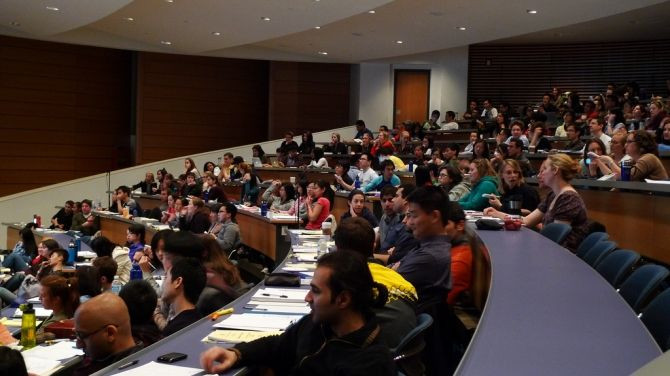Psychological Experiments: Better Behavior and Higher Grades

New studies show theory-based interventions can have dramatic effects in areas of education, prejudice and adolescent behavior problems, health, and many others, Timothy Wilson a professor of psychology at the University of Virginia said Friday in a released statement.
Wilson is the author of Redirect: The Surprising New Science of Psychological Change.
His comments, released by scientific journal publisher SAGE publications, come as three studies demonstrating that new and small ways that can impact people’s lives for the better are being presented at the Thirteenth Annual Meeting of the Society for Personality and Social Psychology from Jan. 26 to Jan. 28 in San Diego, CA.
Adolescent Harassment Study
In one study, Princeton Psychologists, Elizabeth Levy Paluck and Hana Shepherd, studied U.S. public high school students’ perceptions and found that adolescents perceived harassing fellow students as a normal way to gain and maintain popularity status.
Researchers identified popular students who have the most influence in setting social norms using social network analysis for over a year and found that students who were randomly selected to participate in interventions consisting of public denouncements of harassment and bullying decreased their harassment and bullying behavior, which was measured by disciplinary records, teacher assessments, and independent behavioral observations.
Changing Teen Interest in Technical Education
Another study looked to change teen interest in taking science, technology, engineering, and mathematics (STEM) courses, by targeting parents of students rather than student themselves.
Researchers from the University of Wisconsin mailed two brochures to parents and made a website that highlighted the usefulness of STEM courses. Study authors, Judith Harackiewicz and Janet Hyde found that this “relatively simple intervention aimed at parents” led their children to take on an average of nearly one semester more of science and mathematics in the last two years of high school, compared to students whose parents did not receive brochures or had access to the website.
”Our indirect intervention changed the way that parents interacted with their teens, leading to a significant and important change in their teens' course-taking behavior," Harackiewicz said in a statement.
Women and Engineering Study
The third intervention study focused on women with engineering majors. Researchers from Standford University tested the effects of two interventions on female engineering students. One intervention aimed at making them feel like they belonged in engineering, and the other focused on training female engineering student to reflect on core values to help them cope with stress.
Researchers said both interventions improved the first-year grades of women enrolled in male-dominated engineering majors, eliminating the gender gap in grades, compared to women who had not received intervention.
However, the two interventions worked in different ways, women in the belonging group built better relationships with male engineers, while women in the value-training group made more friends outside of engineering, according to results of the study.
Published by Medicaldaily.com



























